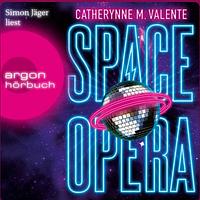You need to sign in or sign up before continuing.
Take a photo of a barcode or cover
The whole thing was like one run on sentence.
adventurous
funny
reflective
medium-paced
Plot or Character Driven:
A mix
Strong character development:
No
Loveable characters:
No
Diverse cast of characters:
Yes
Flaws of characters a main focus:
Complicated
Couldn’t get past page 23. Messy, erratic word salad. Overly descriptive & tangential. Won’t give it a rating because I only read 23 pages.
A lot of reviewers will call this book Eurovision in space, which it is, but I don’t think it accurately describes the feel of reading it (or listening to it- I listened on audio and I do recommend it). Imagine reading Hitchhikers Guide to the Galaxy while listening to the soundtrack of Hedwig and the Angry Inch while you have Doctor Who on mute on TV. In premise it sounds good and I like all those things but it was just... a bit much all done together. One of the things that I disliked the most was that there was just SO much exposition, like dictionary definitions of aliens and snippets of their history etc, that just really through off the narrative flow. Overall I liked elements of it but maybe it would work better as a movie as opposed to a book because the writing sometimes just got in the way of the plot.
Aptly described as a mixture of THE HITCHHIKER’S GUIDE TO THE GALAXY and EuroVision, with a punny title, excellent cover art and a beguiling slogan (“In space, everyone can hear you sing”), Catherynne M Valente’s SPACE OPERA promises a silly read. Unfortunately the silliness occupies so much of the glammed up stage that behind the theatrics there is little action, and less story.
The premise of SPACE OPERA is that after a terrible intergalactic war, the sentient species of the universe have formed a sort of peace treaty where they meet every 46 years to compete in a musical competition, the Grand Prix, where the loser is no longer recognized as sentient and faces extermination. Humankind has just been invited, and while not the aliens’ nor Earth’s first choice, a washed-up glam rocker must get his band back together and attempt to not lose the competition.
The story itself is solid, and the characters are well-developed. Decibel Jones is a fantastic anti-protagonist who continually makes poor decisions, but ones that contribute to both his character development and the plot. Fans of Valente will enjoy reading her masterful tactile descriptions, so vivid you can feel and smell them with the mind’s nose and hands. In the same way the Valente uses repetition to achieve a fairy tale structure in her 2011 novel DEATHLESS, Valente writes in Adams’ style of long, long, and longer sentences full of narrative asides in a loving, beautiful homage to Adams’ work.
However, these long sentences are also the novel’s undoing. The novel is so intentionally over the top with its long descriptions that the plot gets lost in it. Clocking in at roughly 300 pages, the actual plot only occupies about a third of the novel. The other two-thirds are used to help set the stage, to explain what the other sentient species have done, but it’s so much information that once the various aliens do appear, you can’t quite remember which one was from the planet that did that one weird thing next to the wormhole maybe? SPACE OPERA reads like one long, never-ending meme.
This is not to say SPACE OPERA is a bad story. It is a testament to hope in the face of hopelessness, and for perseverance in the face of suffering. Yet the writing is so focused on the style that the reader drowns in the paragraph long sentences. Had the novel focused solely on Jones’ storyline from his present onward, Space Opera would be an absolutely amazing novella and would have earned a much higher rating. As it is now, it’s just too much.
The premise of SPACE OPERA is that after a terrible intergalactic war, the sentient species of the universe have formed a sort of peace treaty where they meet every 46 years to compete in a musical competition, the Grand Prix, where the loser is no longer recognized as sentient and faces extermination. Humankind has just been invited, and while not the aliens’ nor Earth’s first choice, a washed-up glam rocker must get his band back together and attempt to not lose the competition.
The story itself is solid, and the characters are well-developed. Decibel Jones is a fantastic anti-protagonist who continually makes poor decisions, but ones that contribute to both his character development and the plot. Fans of Valente will enjoy reading her masterful tactile descriptions, so vivid you can feel and smell them with the mind’s nose and hands. In the same way the Valente uses repetition to achieve a fairy tale structure in her 2011 novel DEATHLESS, Valente writes in Adams’ style of long, long, and longer sentences full of narrative asides in a loving, beautiful homage to Adams’ work.
However, these long sentences are also the novel’s undoing. The novel is so intentionally over the top with its long descriptions that the plot gets lost in it. Clocking in at roughly 300 pages, the actual plot only occupies about a third of the novel. The other two-thirds are used to help set the stage, to explain what the other sentient species have done, but it’s so much information that once the various aliens do appear, you can’t quite remember which one was from the planet that did that one weird thing next to the wormhole maybe? SPACE OPERA reads like one long, never-ending meme.
This is not to say SPACE OPERA is a bad story. It is a testament to hope in the face of hopelessness, and for perseverance in the face of suffering. Yet the writing is so focused on the style that the reader drowns in the paragraph long sentences. Had the novel focused solely on Jones’ storyline from his present onward, Space Opera would be an absolutely amazing novella and would have earned a much higher rating. As it is now, it’s just too much.
" 'I am sorry, dear boys. But this is not a war. It is not about you, nor are you a part of it. Every child in the galaxy learns the truth about politics at their mother's proboscis. For lo, does not Goguenar's Third Unkillable Fact tell us: "Though any species on any dumb gobworld may develop sentience (the poor bastards), no government ever does"?' "
"You can choose your friends, you can choose your outfit, but you can't choose the environmental conditions that led to the evolution of your specialized anatomy."
"You can choose your friends, you can choose your outfit, but you can't choose the environmental conditions that led to the evolution of your specialized anatomy."
I normally adore this author, but I just can’t even with this book.
A fun, quick read. Valente’s worldbuilding is intricate, and interspersed as vignettes throughout the plot, adding context for what comes next. I need a copy of the Unkillable Facts ASAP.
Super witty and fun book. A little verbose, but every sentence has a joke, if not a pun. I hope everyone gives this author a chance though. Her voice and stories are super refreshing, and she ventures to places that very few to go (as far as I’ve witnessed). If you want to laugh out loud while squealing in utter shock, read this book. The author has inspired me to read more of her work and seek out others that dare to take us on uncommon journeys like her!




